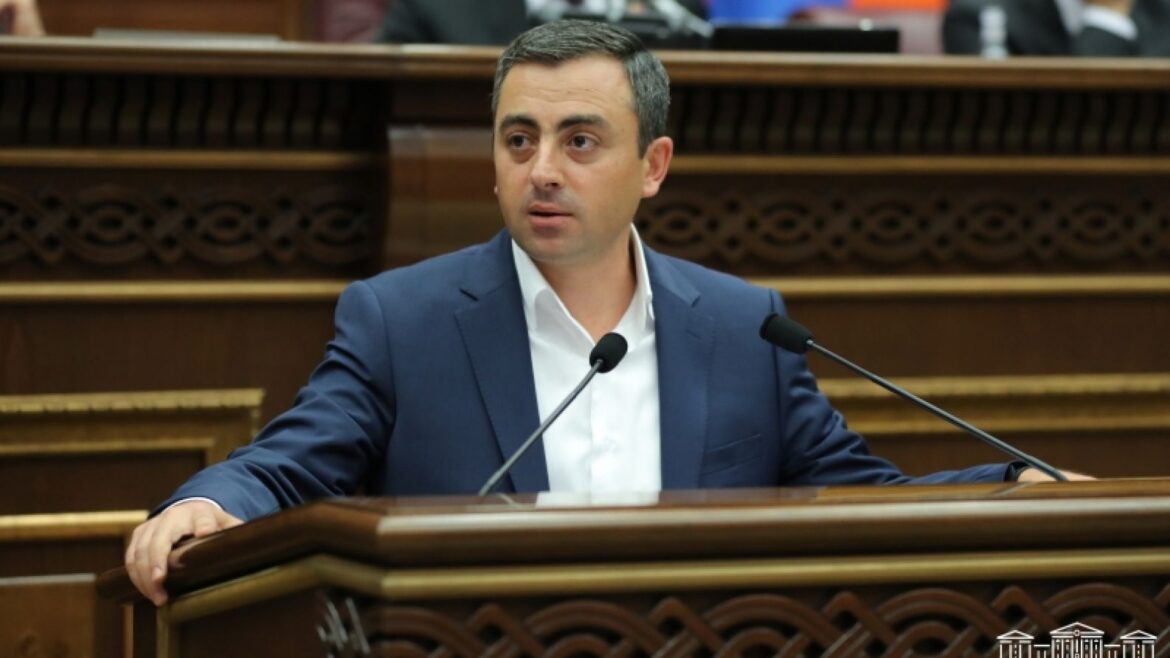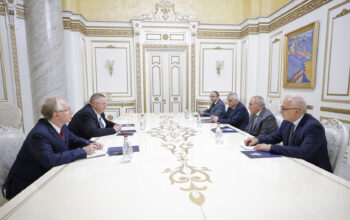The Armenian Revolutionary Federation (Dashnaktsutyun), a key opposition force in Armenia, has accused Prime Minister Nikol Pashinyan of preparing new territorial concessions to Azerbaijan following peace talks held in Washington earlier this month.
The August 8 meeting at the White House, hosted by U.S. President Donald Trump, brought Pashinyan together with Azerbaijani President Ilham Aliyev. The two sides initialed a draft Armenian-Azerbaijani peace treaty, while Pashinyan also pledged to grant the United States exclusive rights to a transit corridor through Armenia demanded by Azerbaijan. Hours later, Aliyev made clear that signing of the treaty remains conditional on changes to Armenia’s constitution.
In a televised address to the nation on Monday, Pashinyan nevertheless declared that “peace has been established between Armenia and Azerbaijan.” He did not mention Baku’s precondition and downplayed the absence of provisions on the release of Armenian prisoners held in Azerbaijan or the precise demarcation of the Armenian-Azerbaijani border.
Instead, Pashinyan argued that: “The new logic of peace is that when saying there are sovereign territories of Armenia currently under Azerbaijani control, we must also say there are sovereign territories of Azerbaijan under our control, and this mutual issue must be resolved in the delimitation process.”
Dashnaktsutyun leaders and other opposition figures interpreted the statement as confirmation that the government is prepared to recognize Azerbaijani claims on Armenian territory. “The statement that there are still Azerbaijani territories under our control was meant to prepare for these new concessions,” said Ishkhan Saghatelyan, head of the ARF’s governing body in Armenia, in a Facebook post. “Moreover, Pashinyan essentially announced that Azerbaijani troops will not withdraw from the occupied territories [of Armenia].”
Pashinyan’s government had already ceded four border areas to Azerbaijan last year, sparking mass protests in Yerevan organized largely by the opposition. The ARF and other critics warned at the time that unilateral territorial concessions would only encourage Baku to demand more.
The draft peace treaty released on August 11 commits both sides to recognizing each other’s territorial integrity and cites the 1991 Alma-Ata Declaration as a guiding principle. Pashinyan presented the declaration as a key guarantee of peace. The Azerbaijani Foreign Ministry, however, dismissed its legal relevance last October, suggesting it does not define the actual borders of former Soviet republics. Yerevan denounced that statement at the time as evidence of Azerbaijani territorial claims against Armenia.
According to opposition leaders, the treaty as drafted does not guarantee security for Armenia or prevent further Azerbaijani aggression. The Hayastan alliance, in which the ARF plays a leading role, charged on August 12 that Pashinyan’s agreements with Aliyev and Trump create “a new existential threat” rather than a foundation for peace.
Although Pashinyan did not specify which territories he believes Armenia controls, he likely referred to several Azerbaijani enclaves inside Armenia occupied by Armenian forces in the early 1990s. At that time, Azerbaijan also seized an Armenian enclave and extensive agricultural land in Armenia’s Tavush province. Baku gained additional Armenian territory during border clashes in 2021 and 2022.




